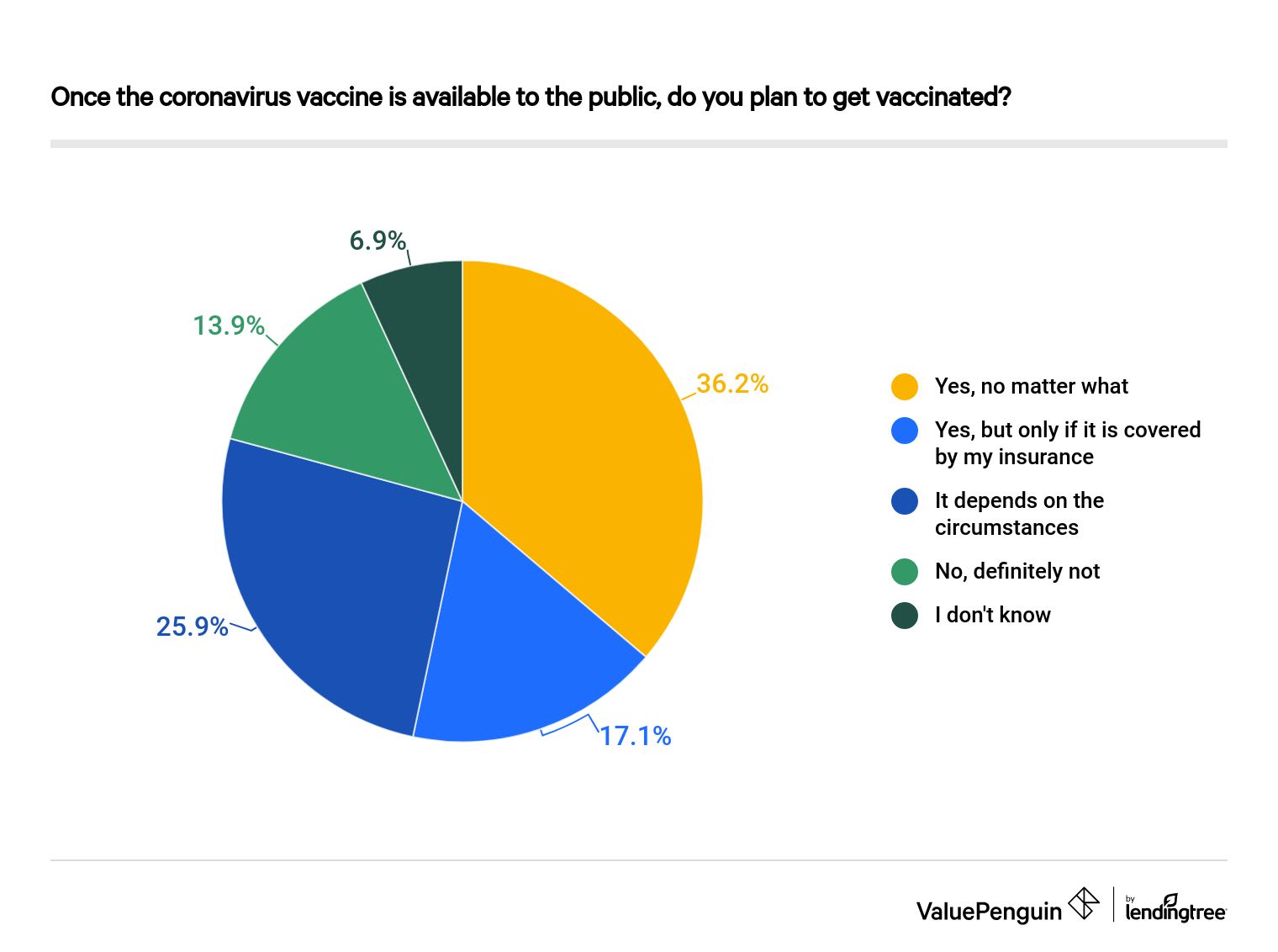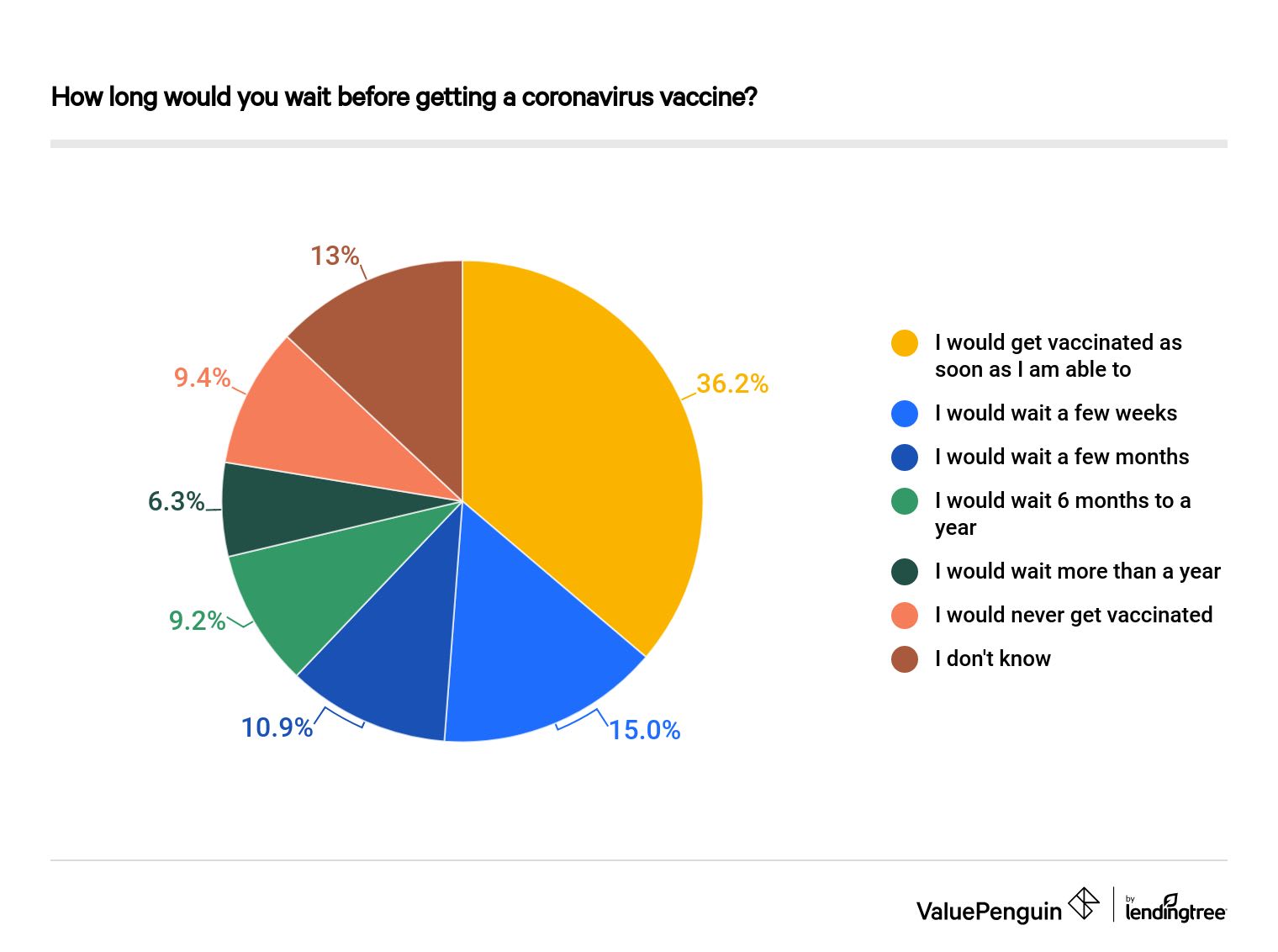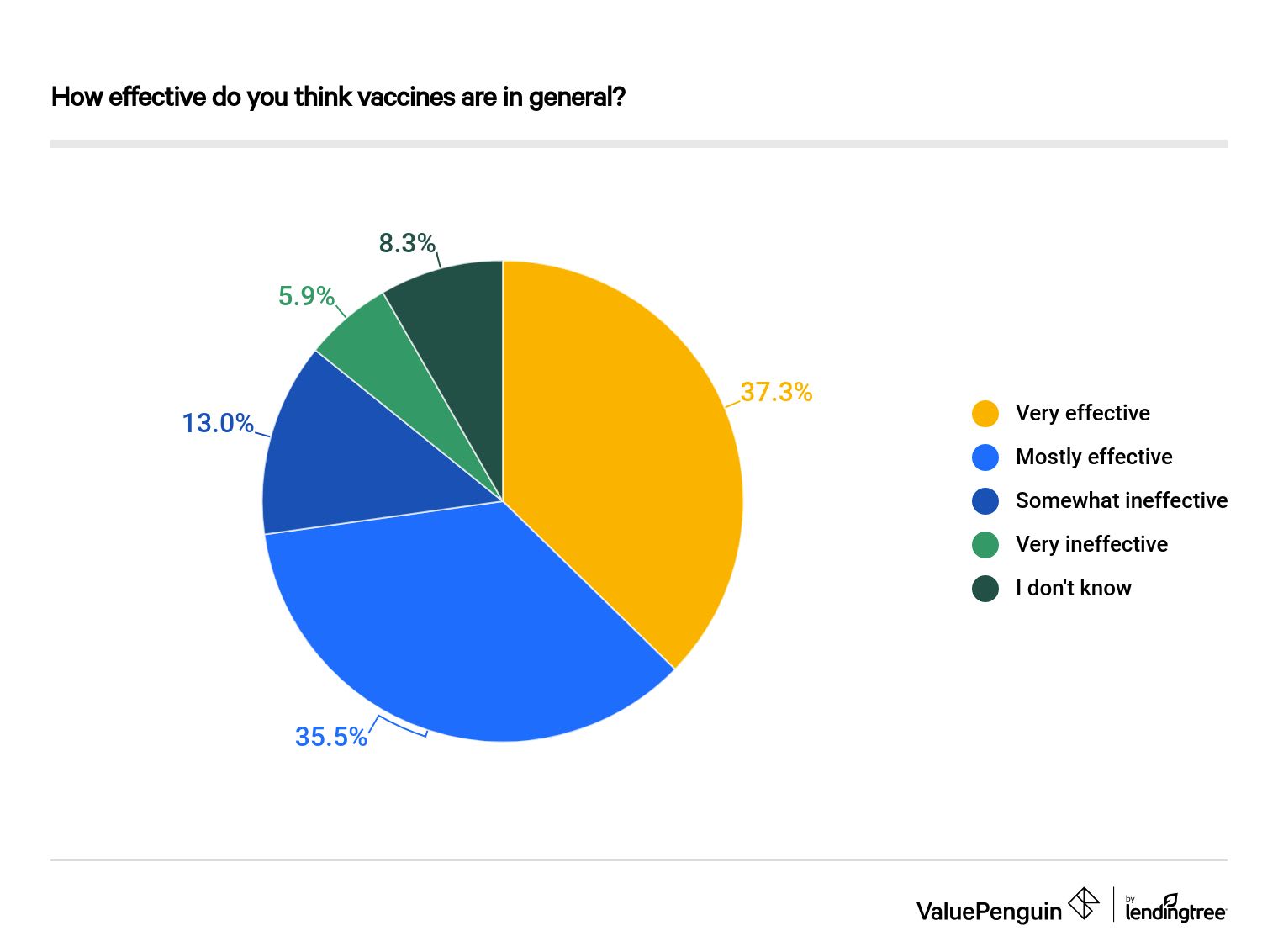Health Insurance
79% of Americans Considering Getting Coronavirus Vaccine — With Some Strings Attached

Key findings
- 79% of Americans are considering getting the coronavirus vaccine once it's available to the public.
- Nearly half (45%) of parents said their child will definitely receive the coronavirus vaccine.
- Women are less likely to get the coronavirus vaccine than men. 18% of women definitely will not get vaccinated vs. 11% of men.
- Republicans are less likely to get vaccinated than Democrats. 46% of Democrats said they would get vaccinated no matter what, vs. 36% of Republicans.
- 51% of consumers believe K–12 public schools should require all children to receive the coronavirus vaccine once it's available, and 49% think offices should require the same of employees.
- Nearly 4 in 10 respondents said they're more likely to get a flu shot this year because of the coronavirus. However, 12% said they're actually less likely.
More than a third (36%) of respondents will get vaccinated for COVID-19 "no matter what."
When broken down by region, people in the New England (39%) and North Atlantic (45%) areas were most likely to say they'll get vaccinated "no matter what."
However, of all our respondents, 26% said their decision will depend on the circumstances, and 17% will only get vaccinated if it's covered by their insurance. Interestingly, this means nearly half of our respondents would put conditions on getting a coronavirus vaccination when it becomes available.
The U.S. government has recently provided funding to private research companies for conducting vaccination research. The government has also said the COVID-19 vaccination will be free of charge and won't need to be covered by insurance.

36% of individuals will get a COVID-19 vaccination as soon as it's available; however, 42% say they'll wait at least a week before being vaccinated.
More than 6% of our respondents wanted to wait a full year before they would consider getting the coronavirus vaccine.

When broken down by gender, 45% of men want to get the vaccine immediately and 42% of women would rather wait at least a week. A larger percentage of women would "never get vaccinated" at 12%, compared to men at 7%.
Nearly two-thirds (64%) of respondents are very or somewhat comfortable with returning to normal day-to-day activities once they have received a coronavirus vaccination.
However, some individuals believe the vaccine would not be effective or are still uncomfortable with the idea of resuming normal life. Specifically, 15% of respondents would still feel uncomfortable because not everyone will receive a vaccination. Overall, men (47%) are much more likely to feel comfortable returning to their day-to-day lives than women (20%).
Older generations — 24% from the silent generation and 16% of baby boomers — were more likely to say they're uncomfortable getting vaccinated. Younger generations tended to say a vaccine would make them feel safe from the virus.
In regard to returning to work, nearly half (49%) wanted mandatory vaccinations for all employees to ensure safety.

To make that happen, employees who want to return to the office would need to get vaccinated first. Baby boomers were least supportive of this requirement — more than 41% thought the decision to get vaccinated should be left to the individual.
Overall, 32% of respondents agreed. By gender, women (40%) were more likely to want to decide for themselves.
Similarly, for school reopenings, 51% want a COVID-19 vaccination requirement before students return to learning.
Respondents with children younger than 18 overwhelmingly (63%) wanted mandatory vaccinations before allowing students and teachers to return to classrooms this fall. However, responses flipped for those who didn't have young children. Nearly half of this group (47%) felt that the vaccination decision should be made by the families, while 34% supported a required vaccination in order to attend school.
Our respondents were split on whether the coronavirus pandemic has changed their views on vaccines in general.
As much as 40% believe vaccines are more important than ever to properly keep our society safe from infectious diseases, while 37% have not changed their views at all. But some people actually see vaccines differently due to the COVID-19 outbreak — 16% view them more negatively because they did not protect us from the coronavirus.

When asked about vaccine effectiveness, most respondents (73%) believe vaccines are "somewhat" to "very" effective at controlling the spread of disease. However, 19% still believe a vaccination is not a good way to combat a virus.
Surprisingly, older individuals were more likely to believe in the power of vaccinations — 78% of Gen Xers and 75% of baby boomers believe they are effective. On the other hand, only around 60% of millennials and Gen Zers answered similarly.
Vaccinations and health insurance
Vaccinations are usually covered by health insurance policies because they're considered "preventive care." That's one of the essential health benefits required in every qualified health insurance policy under the Affordable Care Act.
Looking forward, a COVID-19 vaccination will most likely be provided to you for free from the U.S. government or will be covered by your health insurance policy.
Methodology
ValuePenguin commissioned Qualtrics to conduct an online survey of 1,010 Americans, with the sample base proportioned to represent the overall population. The survey was fielded July 24–26, 2020.
